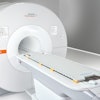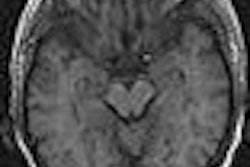Gene-based science is all the rage these days, and neuroimaging is certainly doing its part to advance the cause. The latest imaging genomics study has found that certain genotypes will affect amygdala function, specifically in cases of mood and anxiety disorders.
A group from the National Institutes of Health (NIH) looked at genetic variations in the brain serotonin system (5-HT), as well as a 5-HT transporter (5-HTT) and a 5-HT polymorphism (5-HTTLPR), and matched them with the reactivity of the amygdala to potentially anxiety-inducing environmental cues. The researchers then used blood oxygen level-dependent (BOLD) functional MRI (fMRI) to explore the connection between the genetics of cognition and emotion.
"We have focused on the effects of the 5-HTTLPR on amygdala function because this region plays a central role in the generation of behavioral arousal and orientation, as well as specific emotional states such as fear," explained Ahmad Hariri, Ph.D., and colleagues in the Archives of General Psychiatry. At the time of the study, Hariri was with the NIH's National Institute of Mental Health Division of Intramural Research Programs in Bethesda, MD. He is now at the University of Pittsburgh in Pennsylvania.
"Our current fMRI task is designed to elicit a maximal response from the amygdala (by comparing its response to biologically salient versus nonsalient stimuli)," they added (Archives of General Psychiatry, February 2005, Vol. 62:2, pp. 146-152).
For this study, 92 normal volunteers underwent fMRI scans on a 3-tesla unit (Signa, GE Healthcare, Chalfont St. Giles, U.K.), using a gradient-echo planar imaging sequence, covering 24 axial slices. Imaging began at the cerebral vertex, and encompassed the entire cerebrum and most of the cerebellum. During the scan, the subjects performed a perception task, which involved matching fearful and angry facial expressions to one another. This exercise is known to "robustly" engage the amygdala, according to the authors.
Significant activations were calculated as the percentage of BOLD signal change between emotional and control tasks. An analysis of variance was then performed on the left and right amygdala to identify genotype, sex, and genotype by sex effects.
The results showed that bilateral amygdala activity in all subjects was associated with perceptual processing of fearful and threatening facial expressions. In addition, the right amygdala was significantly more active in those with short allele (S allele) carriers. This genetic variant has been associated with a 50% reduction in 5-HTT availability.
The effect of this genotype of amygdala function was equally prominent in men and women, the authors reported. However, there was no association between BOLD fMRI data and harm avoidance data in either side of the amygdala.
"Our results reveal that the 5-HTTLPR S allele has a robust effect on human amygdala function independent of both sex and S allele load," the authors stated. "Our data suggest that the heritable variation in 5-HT signaling associated with the 5-HTTLPR results in relatively heightened amygdala responsivity to salient environmental cues."
This connection is especially important for tailoring affective disorder treatment with selective serotonin reuptake inhibitor (SSRI) antidepressants. Recent studies have shown that the effects of SSRIs are dependent on alterations in 5-HT subsystems. As a result, 5-HTTLPR S allele carriers tend to respond poorly to SSRIs or require a higher dosage.
For the next stage of research, the group -- led by Hariri's co-author, Dr. Daniel Weinberger -- plans to explore the impact of early environmental stress on brain function in children and adolescents with genetic variants. In the meantime, the researchers concluded that 5-HTTLPR "may represent a classic susceptibility factor for affective disorders by biasing the functional reactivity of the human amygdala in the context of stressful life experiences."
By Shalmali Pal
AuntMinnie.com staff writer
March 22, 2005
Related Reading
MRSI may be just the "tool" to diagnose bipolar disorder, November 30, 2004
Secretin infusions activate amygdala, may normalize affect in psychiatric patients, April 29, 2004
Copyright © 2005 AuntMinnie.com




















